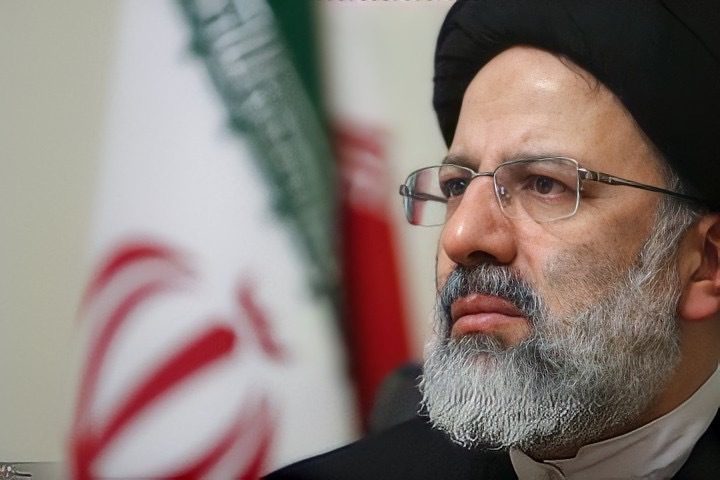Under Raisi’s leadership, Iran and Qatar led a friendly and close relationship with positive exchanges on many fronts.
Iran’s President Ebrahim Raisi has died after the helicopter carrying him and several officials crashed in a mountainous and forested area of the country amid poor weather conditions.
Raisi, aged 63, was a prominent conservative figure in Iranian politics and had been in office for nearly three years.
He was anticipated to run for re-election next year. A former chief justice, Raisi was often regarded as a potential successor to Ayatollah Ali Khamenei, Iran’s 85-year-old supreme leader.
Born in Mashhad, a religious hub for Shia Muslims in northeastern Iran, Raisi received his religious education at the seminary in Qom, studying under notable scholars, including Khamenei himself.
Like the supreme leader, he wore a black turban, indicating his status as a sayyid, a descendant of the Prophet Muhammad, which holds particular significance among Twelver Shia Muslims.
Raisi began his career as a prosecutor in various jurisdictions before moving to Tehran in 1985.
He was a long-time member of the Assembly of Experts, responsible for selecting a new supreme leader if the need arose.
In 2014, he was appointed attorney general and later led the Astan Quds Razavi, a charitable trust with significant assets, by Khamenei.
Raisi first ran for president in 2017 but was unsuccessful against Hassan Rouhani.
By 2019, he was the head of the Iranian judiciary, positioning himself as a justice advocate and corruption fighter.
Raisi ascended to the presidency in 2021 during an election marked by low turnout and the disqualification of many reformist and moderate candidates.
Known for his stern stance against Israel and the United States, he frequently condemned actions by these nations, particularly since the genocide in Gaza began in October 2023.
During his speeches, Raisi would call out the “genocide” and “massacres” committed by Israel since they first began in October.
He promised retaliation after Israel targeted Tehran’s consulate in Syria, resulting in the death of seven IRGC members, including two generals. Iran’s response included launching drones and missiles at Israel, hitting two military bases.
Raisi was critical of the 2015 nuclear deal, the Joint Comprehensive Plan of Action (JCPOA), and supported Khamenei’s policy of “resistance” against sanctions imposed after the U.S. withdrawal from the deal in 2018.
A close ally of the IRGC, Raisi also backed the “Axis of Resistance” comprising various groups supported by Iran across the region.
Raisi and Qatar
Under Raisi’s leadership, Iran and Qatar led a friendly and close relationship with positive exchanges on many fronts, including fortifying bilateral ties through agreements, mediation diplomacy, and aid deliverance.
In February, Iran’s Foreign Minister Hossein Amir-Abdollahian, who also died with the president in the crash, described Iran’s ties with Qatar as “very good.”
Raisi and Qatar’s Amir Sheikh Tamim bin Hamad Al Thani recently met at the sidelines of the 7th Summit of the Gas Exporting Countries Forum in Algeria in March.
The meeting in Algiers aimed at fortifying the bilateral ties between Qatar and Iran, with the ever-escalating war in Gaza high on the agenda during their discussions.
Under his leadership, Iran and Qatar solidified their relations through multiple agreements.
In February 2022, Iran and Qatar signed a total of 14 different agreements that covered different sectors of cooperation. Those include trade, sea and air transportation, visa cancellation, media, diplomacy, electricity, standards, culture and education.
Doha also spearheaded multiple mediation efforts in Iranian affairs with the U.S. including the milestone prisoner exchange in September 2023 and the 2015 nuclear deal.
In September, heavy mediator Qatar facilitated the historic prisoner swap agreement between Tehran and Washington in September 2023, which led to the release of five prisoners from each side in exchange for releasing $6 billion worth of Iranian assets.
The Iranian funds, which were previously held in South Korean banks were successfully relocated to six Iranian accounts situated within two Qatari banks.
In November, Iran’s Ambassador to Qatar Ali Salehabadi said that banking procedures were well underway and that the Iranian funds remain entirely accessible.
Also, during the COVID-19 outbreak, Qatar stepped in to help Iran as the country was navigating during a time of uncertainty.
In September 2021 and July 2023, among other occasions, Qatar sent urgent medical aid to Iran as it grappled with the virus.







